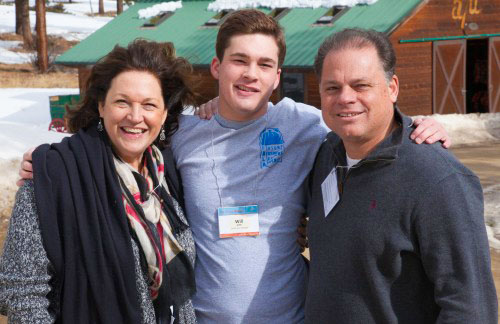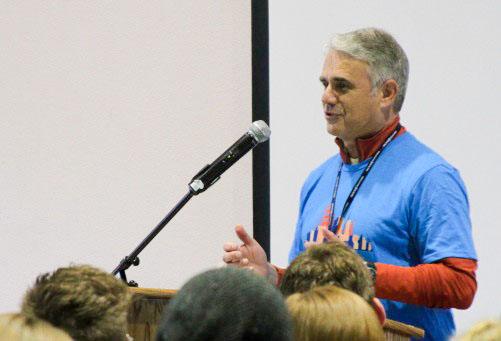Q&A: What Makes the NLC Mentor/Mentee Relationship Successful?
When an 8th grader commits to the DiscoveryBound National Leadership Council (NLC), the student is embraced in a support structure designed for the greatest growth in servant leadership and spirituality. In addition to two adult leaders per class, an adult mentor for each teen – often chosen by the student from his or her close community – plays an important role as a friend, role model and support during the program’s four years.
NLC graduate Will Adler (2016E class) and his mentor, Don Wallingford, didn’t have an immediate connection. A friend of Will’s parents, Don lived about an hour away, and he and Will didn’t know each other well. But the lessons they learned throughout the program, shared in the following Q&A, helped make the relationship successful, and one they continue today.

Will and his parents
Can you describe the beginning of your mentor/mentee relationship?
Will: At first our relationship felt a little forced. We tried to meet once a month and call each other every other week in order to stay in contact. Eventually as our lives both got busier and we got a couple years into the program it was harder to meet as often. Mr. Wallingford and I both go to all the local DiscoveryBound Outreach events and local church get-togethers, so that’s when we would have our meetings.
Don: I assumed at the beginning that it would be somewhat formal and structured. But we soon realized that we would have to work hard at supporting the relationship, rather than just running into each other. We both tried to stick to the agreement as much as we could and the structure did help us concentrate when we were together.
How did your relationship evolve throughout the program?
Will: Our relationship shifted from Mr. Wallingford being an adult who was supposed to make sure I do all my NLC work to a friend and supporter. We trusted each other with our responsibilities. Once this happened, I feel like our mentor/mentee relationship progressed a lot. I knew he was going to be there for me when I had questions and that he would always be involved on the mentor calls. He trusted me to get all my Congressional Award and NLC stuff done.
Don: The deeper we got into the program the more fun we started to have. I think we grew to appreciate each other as individuals and as friends more than just a mentor/mentee in a program – I know I did. In other words, the relationship grew into something we both enjoyed and the program requirements became secondary.
Will’s parents really bought into the program in that they wanted to make Will’s participation as easy for him as possible, including helping him with the family calendar, but they had no intention of doing the work for him or trying to tell him what to do. They were very much in favor of Will and me spending as much time together as possible and maintaining our confidentiality with each other. They weren’t worried at all that Will might share things with me privately; in fact, they welcomed it. They wanted Will to get to know an adult Christian Scientist outside of the family so he could see that his own family’s lifestyle choices (as well as the importance given to spiritual values and church participation) were shared by others.

Will’s mentor, Don
Can you share any specific turning points in thought and action that reshaped your mentor/mentee relationship?
Will: The more we hung out and talked the more we learned to respect and like each other. We really got to know each other and became genuine friends.
Don: As it happened, I am a practitioner listed in the Christian Science Journal, so when the class wanted to have a practitioner accompany them on their adventure trip in summer #2, the leaders asked me if I would do it. That was an incredible honor and had a big impact on Will and me becoming even better friends. We got to see each other in action, so to speak, and that broke down even more barriers.
One particularly memorable day on the canoe trip involved Will’s boat-mate becoming ill. She needed loving, prayerful attention and Will had to care for her as well as do all the paddling for several hours. He rose to the occasion in both capacities and my respect for him grew greatly. At one point my canoe and another towed Will and his partner for several miles. It was just one of those experiences where everyone was listening for guidance and working together and really feeling God’s power and love. Everything was resolved happily.
How did this relationship affect your lives?
Will: Having a mentor provided me with a support system and a friend with which to share the NLC experience. It was really helpful having a mentor when working on my Congressional Award because he helped me come up with ideas on how to complete my hours for the categories that I had trouble with. A mentor is also really important for when you need to prepare for going on the summer trips because he provided me with great advice and metaphysical support.
Don: Being a mentor made me try new things and be willing to stretch. It made me think deeply about someone outside of my circle of friends and family – and thereby expand that circle. You can’t be a mentor and be self-centered. You have to give and love and care for someone else. It also made me appreciate how much other people love their kids and want them to have things (relationships, experiences, perspectives) that they can’t give them themselves. It helped me understand and experience the “it takes a village” idea in helping teens and families.
Mentoring helped me overcome the suggestions (age-related perhaps) that certain experiences are over – that mortal life has stages of decline that are unavoidable. We make choices about our lives; and choices that are spiritually centered are very renewing.
Don, what’s involved in being a mentor to an NLC student?
Don: First is the willingness and commitment to pray for your teen just like I do for my own kids. Just sweep him into your family in terms of prayer and loving attention to who he is as a child of God, and then defend him from all the aggressive suggestions that would make his life difficult. This requires daily thoughtful prayer – listening to what God knows and communicates about the teen.
Second is getting over yourself as an “adult” and him as a “teen” and just seeing him eye to eye as a friend and co-seeker for Truth. Mentors don’t have all the answers, but they do have some and more importantly, they are in the habit of taking their questions to God. That’s the habitual process the teen needs to witness in action – the mentor living a life of prayerful obedience to God.
In terms of a time commitment, the leaders did a lot of the heavy lifting as far as assignments, deadlines, and goals. We pretty much just had to show up for the calls, pay attention, and then do what they said.
Both mentor and mentee are helped by seeing each other right in the action of learning how to live a good life – a life that is genuinely trying to live in the light of Life, Truth and Love. It’s the genuineness that matters – being real in learning to live your life and adapt in following God’s lead. The worst thing would be for the mentor to act as if he/she had everything all figured out and was living life on autopilot. Good for you if you think you can do that, but that’s not what the mentee needs to see. Learning how to learn is more important than what you already know. Working that out together, sharing some of that experience, makes the relationship worthwhile.
Are you interested in mentoring a student? Learn more.
No tuition or program fees are charged to NLC students – it only happens because of generous friends like you. Support the DiscoveryBound National Leadership Council.
Related Articles
New Round-Up Program Adventures
Planning for summer Youth Camp always includes discussions about what new program offerings might be a hit with campers. This year, Round-Up (high school) campers enthusiastically jumped into new challenges…
The Lasting Impact for National Leadership Council Alumni
From the DiscoveryBound National Leadership Council (NLC) NLC alumni share a heartfelt message to teens about what the program meant to them as teenagers and how it continues to impact…
My Inspiration and Adoring New Friendships from DiscoveryBound
By Melissa Kelly I learned about the DiscoveryBound Outreach adult trip to Nantucket and Cape Cod from my sister. My grandparents had owned a house on Nantucket, and I spent…
